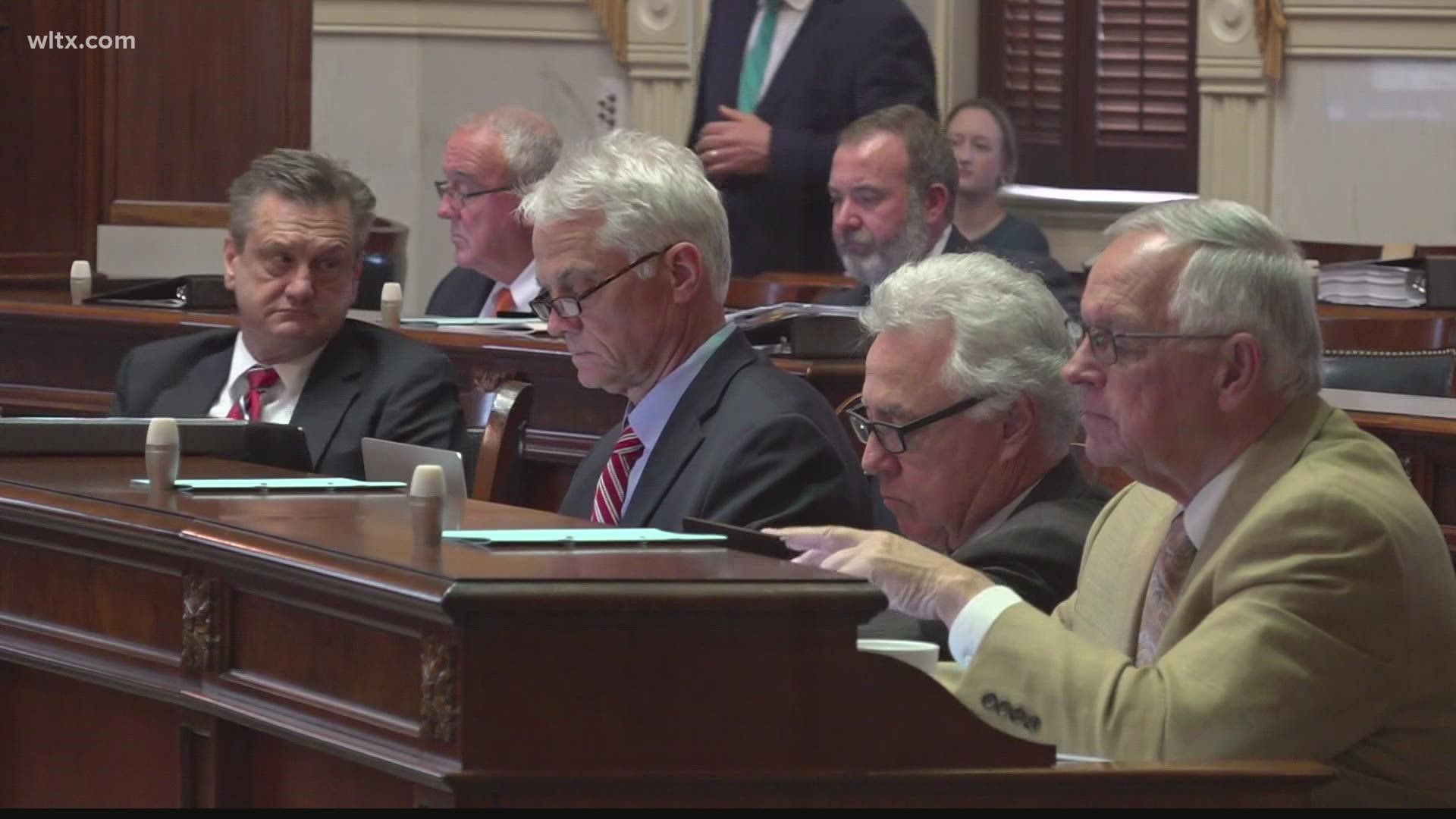COLUMBIA, S.C. — The South Carolina Senate's debate on a bill that would give some poorer or disabled students money so they could pick a private school or public school outside their district will continue into next week.
The bill provides up to $6,000 in state money each year. Along with tuition, the money could also go toward textbooks, materials, education services, or equipment for disabled students.
The program would be limited to students whose family income is low enough to make them eligible for Medicaid and students who have disabilities that require a formal plan for their education from a school district. More than half of the state's 781,000 students could use the program.
Thursday marked the second day of debate on the proposal. No vote was taken.
The proposal is the evolution of more than a decade of Republicans pushing to put money into providing more education choices for parents. Problems with online or in-person classes during the COVID-19 pandemic gave the legislation more urgency. Sponsors tailored the bill toward poorer families or those with special education needs.
Opponents maintain that such a program likely violates the state constitution, which prohibits spending public money on private or religious schools. They said $6,000 doesn't cover the full tuition at some private schools and poor students can't afford to make up the difference.
They also contend that a fairer solution would be to put more money into education, especially in poorer areas, instead of concentrating on a plan not popular with educators.
“Teachers have screamed for years that this doesn’t help us," Democratic Sen. Mike Fanning of Great Falls said. “Please stop bringing your politics to our classrooms.”
The program would be limited to 5,000 students the first year before reaching a permanent cap of 15,000 students the third year. If the program reaches its maximum, it would cost $90 million a year, said Senate Majority Leader Shane Massey, who pointed out that other states with similar programs have not reached capacity.
“Some of the boogeyman stuff you are going to hear is all the students are going to flee the public school system and bankrupt them," the Republican from Edgefield said. “You are not going to have that many children leaving the public school system."
Massey held a number of meetings to tweak the bill. If a student leaves a school district, the per-pupil spending from the state for that student is no longer taken away. Private schools that take the money would have to give students the same standardized tests as public school students for accountability.
Still, Sen. Kevin Johnson asked Massey why the Legislature shouldn't spend the money directly in poorer districts to help all students instead of just the ones whose parents are motivated enough to take advantage of this program.
“Some of these places, I don’t care how much money you send in there. It’s not going to make a material difference for some of those children,” Massey said.
Massey said he wants to find any solution to help students, comparing the bill to the story about thousands of starfish washed up on the beach after a storm and a girl throwing them back one at a time. When told she can't help them all, she says, “I made a difference for that one.”
“This is not a silver bullet. This doesn’t solve every problem in education, but it solves some," Massey said.
A similar bill is on the House floor. The House proposal would create a pilot program and uses money that isn't already set aside for education. It has yet to be debated.
Lawmakers are also considering bills that would allow school choice both within school districts and across district lines under some circumstances.

